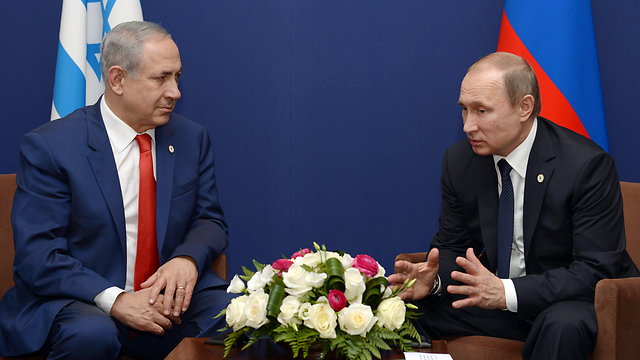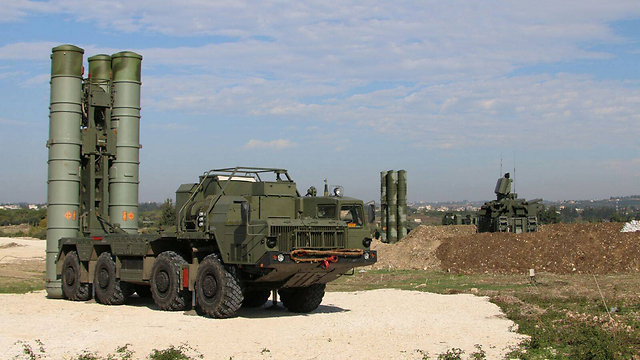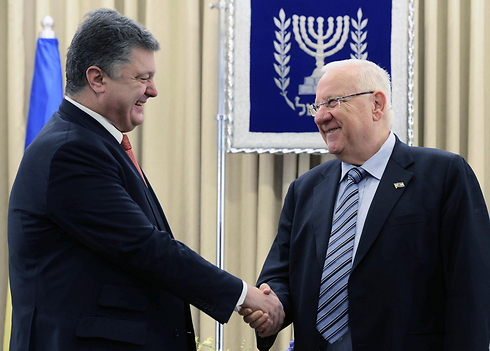The prime minister and Russian president spoke on the phone and agreed to continue cooperation in the region, while claims arise in Arab media that Israel and Russia coordinated killing of Hezbollah leader in Syria.
Prime Minister Benjamin Netanyahu and Russian President Vladimir Putin agreed in a phone call on Tuesday to coordinate their two countries’ actions to fight terrorism in the Middle East, only three days after Hezbollah leader Samir Kuntar was killed in an airstrike in Syria, which the Lebanese terror organization attributes to Israel.
The two leaders discussed the Syrian crisis during their conversation.
“Vladimir Putin stressed that there is no alternative to the launch of intra-Syrian negotiations under the auspices of the United Nations, as well as to the continued and uncompromising fight against Islamic State and other extremist groups acting in Syria,” the Kremlin was quoted as saying.

Russia has dived in head-first into the Syrian civil war, launching its military operations in the country on September 30 in support of President Bashar Assad.
Israel and Russia have set up a communications channel to make sure their air forces do not clash with each other, though it was not known whether the alleged Israeli strike on Kuntar had been announced to the Russians ahead of time.
When asked about the matter on Monday, Putin’s spokesman Dmitry Peskov said he was unsure whether Israel had warned Russia about the strike.
“There is a working mechanism of information exchanges between the general staffs. It is the military who should be addressed with this question and asked if there had been any prior notifications on that score,” he said.
Meanwhile, Arab media not affiliated with the Assad regime or Hezbollah asserted that Russia and Israel coordinated the attack against Kuntar, as Moscow did not make use of the S-400 air defense system it deployed in Syria to stop the airstrike.

The conversation between Putin and Netanyahu was also held in the wake of agreements made between Turkey and Israel that could lead to reconciliation between the two countries. While Ankara is warming ties with Jerusalem, its relationship with Moscow remains strained after the Turkish military shot down a Russian fighter jet last month, leading to an exchange of accusations between Putin and Turkish President Erdogan.
The phone conversation also comes on the heels of the visit of Ukrainian President Petro Poroshenko, Putin’s bitter rival, to Israel. Poroshenko met with both Netanyahu and President Reuven Rivlin on Tuesday.

“Although our stories are different we have many similarities, one of which is about building up a successful state against turbulent regional realities, and under continuous attack from terrorism,” Poroshenko said at the President’s Residence, possibly implying to Putin’s military activities in Ukraine.
In his meeting with Netanyahu, Poroshenko signed several bilateral cooperation agreements.
Netanyahu and Putin met on the sidelines of the Global Climate summit in Paris in late November, stressing the importance of Israeli-Russian military cooperation to prevent “unnecessary accidents.”
In a recent interview on Israel radio, Defense Minister Moshe Ya’alon said that a Russian plane had mistakenly entered Israeli airspace, and was not shot down. Ya’alon said the plane entered about 1.5km into Israeli airspace by mistake and immediately turned around back to Syria when the Russians were notified.
As reported by Ynetnews
